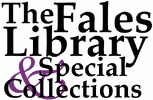Leonard Rosenman Papers
Call Number
Date
Creator
Extent
Language of Materials
Abstract
The Leonard Rosenman Papers chronicle the career of Leonard Rosenman in his roles as concert composer, pianist, film composer, and conductor from the early 1950s to 2001. Two of his most famous compositions include the score for East of Eden and Rebel Without a Cause. The bulk of the collection consists of autograph music scores, sketches, lead sheets, musical breakdowns, and parts from music composed for concert, theatrical, and television productions. Materials in this collection date from 1949 to 1996.
Biographical Note
Leonard Rosenman (1924-2008), a native New Yorker, was a student of Arnold Schoenberg and Roger Sessions and Ernest Bloch. In the midst of a promising concert career, and championed by Leonard Bernstein and Aaron Copland, his roommate, and piano student James Dean, convinced him to compose the score for Elia Kazan's East of Eden (1955). He followed that success with the first 12-tone score for a major motion picture, The Cobweb (1955), and James Dean's next film, Rebel Without A Cause (1955). Representing Hollywood's "second generation" of film composers, Rosenman disengaged from the lush romantic orchestrations of his predecessors, Max Steiner and Erich Korngold. His avant-garde style embraced the aesthetics of Berg and Schoenberg - well suited to the gritty films, which soon followed - Edge of the City (1957) and the documentary-style The Savage Eye (1960); which he adapted from his twelve-tone Chamber Music #1. Rosenman founded, and co-conducted with William Kraft, his own chamber group in Los Angeles during the 1960s. His Chamber Music I, a symphony for fifteen players, was premiered at the prestigious Monday Evening Concerts in 1960. Generally credited with bringing modern-music sensibility to commercial film, he experimented and broke new ground throughout his scoring career: notably with musical silence, tone colors and atonal textures in Fantastic Voyage (1966); adapting Sioux Indian source music for A Man Called Horse (1970); and creating a bizarre Mass for Beneath the Planet of the Apes (1970).
Rosenman won two Oscars for Barry Lyndon (1975) and Bound for Glory (1976) and two Emmys for Sybil (1976) and Friendly Fire (1979). Other television scores include: The Defenders (1961), Combat! (1962) and Marcus Welby, M.D. (1969). He was Oscar-nominated for Cross Creek (1983) and Star Trek IV: The Voyage Home (1986).
Arrangement
The collection is arranged into two series which have been separated by document size. Folders are arranged alphabetically by title within each series. There are two additional oversize series listed at the end.
Series I. Film Scores and Parts: for each film, each cue is separated by "Winds," "Strings" and "Percussion," where "Winds" consists of parts for Woodwind and Brass instruments, "Strings" consists of all string instruments, "Percussion" consists of all percussive and rhythmic instruments. The "Score" for each film consists of all Cues combined (applicable to standard as well as oversized film material). When or if these parts of the cue are large, they may expand across numerous folders and are labeled to indicate this (e.g. "Folder 1 of 3").
Series II. Concert Music: for concert music, each piece may be separated into individual folders under the following conditions: when it is necessary to separate by "Winds," "Strings," "Percussion" and "Score" (applicable to pieces large and small), and when the material in which it was scored differs from other copies (i.e. manuscript paper, onion skin), in which case the difference will be indicated (e.g. "Onion skin"). Oversized Concert material is organized in a similar fashion.
Series I. Film Scores and Parts
Series II. Concert Music
Oversize -- Series I. Film Scores and Parts
Oversize -- Series II. Concert Music
Scope and Contents
The Leonard Rosenman Papers, consisting of nearly 7,800 pages, chronicle the career of Leonard Rosenman in his roles as concert composer, film and television composer, and conductor from 1945-1995. Two-thirds of the collection consists of manuscript scores of concert works, and one third comprised of scores, sketches, orchestrations, and parts for major motion pictures. The purposes of the scores fall under the broad categories of concert music, film music, and movies for television. The collection includes various autograph materials, including autograph scores, conductor short scores, sketches, vocal and orchestral parts, and lead sheets. Materials in this collection date from 1949 to 1996.
Subjects
People
Topics
Donors
Conditions Governing Access
Materials are open without restrictions.
Conditions Governing Use
Copyright (or related rights to publicity and privacy) for materials in this collection, created by Leonard Rosenman was not transferred to New York University. Permission to use materials must be secured from the copyright holder.
Preferred Citation
Identification of item, date; Leonard Rosenman Papers; MSS 212; box number; folder number; Fales Library and Special Collections, New York University.
Location of Materials
Immediate Source of Acquisition
Donated by Judie Rosenman in 2008; an additional accession was donated in 2017 by the Rosenman family. Additional materials were supplied by Scott Dunn and NYU Faculty Mike Patterson. The accession numbers associated with these gifts are 2008.212 and 2018.074.
About this Guide
Processing Information
Processing decisions made prior to September 2018 have not been recorded. Materials in the 2018 accretion were placed in acid-free folders and boxes and kept in their original order.
